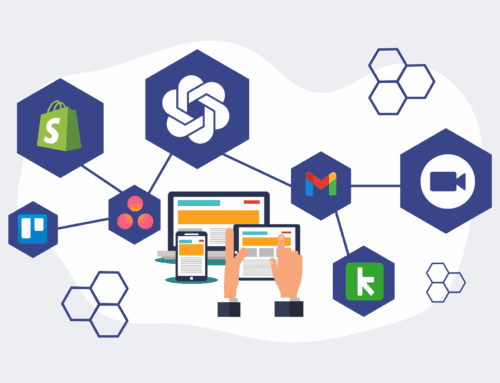Troubleshooting Common Issues in Cross-CRM Data Migration
In the evolving landscape of business technology, the decision to migrate CRM systems often arises from a strategic imperative: to enhance efficiency, consolidate data, or leverage more powerful functionalities. Yet, beneath the promise of improved operations lies a complex challenge – cross-CRM data migration. This isn’t merely a technical task; it’s a critical business operation that, if mishandled, can lead to significant disruptions, data loss, and operational inefficiencies that undermine the very goals it aimed to achieve.
At 4Spot Consulting, we understand that moving your invaluable customer and operational data from one CRM platform to another, especially across different vendors with varied architectures, is fraught with potential pitfalls. The objective is never just about transferring bytes; it’s about preserving the integrity, accessibility, and utility of information that drives your business forward. A smooth migration ensures business continuity and maintains a single, reliable source of truth.
The Hidden Complexities of Data Discrepancy and Integrity
One of the most pervasive issues in cross-CRM migration is the challenge of data discrepancy and integrity. Different CRMs often have unique ways of structuring and storing information. What one system classifies as a ‘Contact’ with specific custom fields, another might treat as a ‘Lead’ with an entirely different schema. Attempting a direct, one-to-one transfer without careful mapping inevitably leads to lost data, malformed records, or crucial information being shunted into irrelevant fields. The consequence? Sales teams operating with incomplete customer profiles, marketing campaigns targeting the wrong segments, and service agents lacking the full historical context needed to resolve issues.
Beyond structural differences, data quality itself presents a formidable hurdle. Years of accumulated data in an existing CRM often contain duplicates, outdated entries, or inconsistent formatting. Migrating this “dirty” data merely transfers the problem to the new system, contaminating its efficacy from day one. Addressing data integrity requires a meticulous pre-migration audit, cleansing, and standardization process—a step often underestimated in its complexity and importance.
Navigating Downtime, Integration Gaps, and Operational Friction
Another common concern for businesses undergoing CRM migration is managing the inevitable period of downtime. While some downtime is unavoidable, prolonged or unexpected interruptions can halt sales processes, disrupt customer service, and impede critical operations, leading to lost revenue and damaged customer relationships. The key is meticulous planning and a phased approach that minimizes the impact on day-to-day activities, ensuring that essential functions remain operational even as data is being transferred and validated.
Furthermore, post-migration, businesses often encounter integration gaps. A CRM doesn’t operate in a vacuum; it’s typically part of a larger ecosystem of tools, from marketing automation platforms to ERP systems and communication channels. When data moves, these existing integrations can break or fail to function as expected in the new environment. Re-establishing these connections correctly and ensuring seamless data flow across the entire tech stack is crucial for maintaining operational efficiency and preventing new data silos from emerging. The goal is to not just move data, but to ensure it actively serves the entire business workflow.
Security, Compliance, and the Human Element
Protecting Your Most Valuable Asset: Data Security
Data security and compliance are paramount considerations in any migration. Transferring sensitive customer, financial, or proprietary data between systems opens potential vulnerabilities if not handled with the utmost care. Ensuring that data remains encrypted, protected from unauthorized access, and compliant with relevant regulations (like GDPR, CCPA, or industry-specific standards) throughout the migration process is non-negotiable. A breach during migration can have catastrophic consequences, eroding trust and incurring significant legal and financial penalties.
Minimizing Human Error and Resistance to Change
Finally, the human element cannot be overlooked. Migration projects are inherently complex, involving multiple stakeholders from IT to sales, marketing, and customer service. Without clear communication, comprehensive training, and robust change management strategies, user adoption of the new CRM can falter. Employees may resist new workflows, make errors due to unfamiliarity, or revert to old systems, undermining the entire investment. Human error during data mapping or manual transfers is also a frequent source of corruption and loss.
At 4Spot Consulting, our OpsMap™ diagnostic is designed to preempt these very issues. We don’t just migrate data; we architect a solution, ensuring data integrity, minimizing downtime, securing your information, and facilitating seamless user adoption. By understanding your current state and desired future, we build an OpsMesh™ strategy that ensures your cross-CRM data migration is not just a transfer, but a transformation that propels your business forward, saving you countless hours and ensuring a reliable single source of truth.
If you would like to read more, we recommend this article: Your Guide to Secure HR & Recruiting CRM Migration with CRM-Backup








